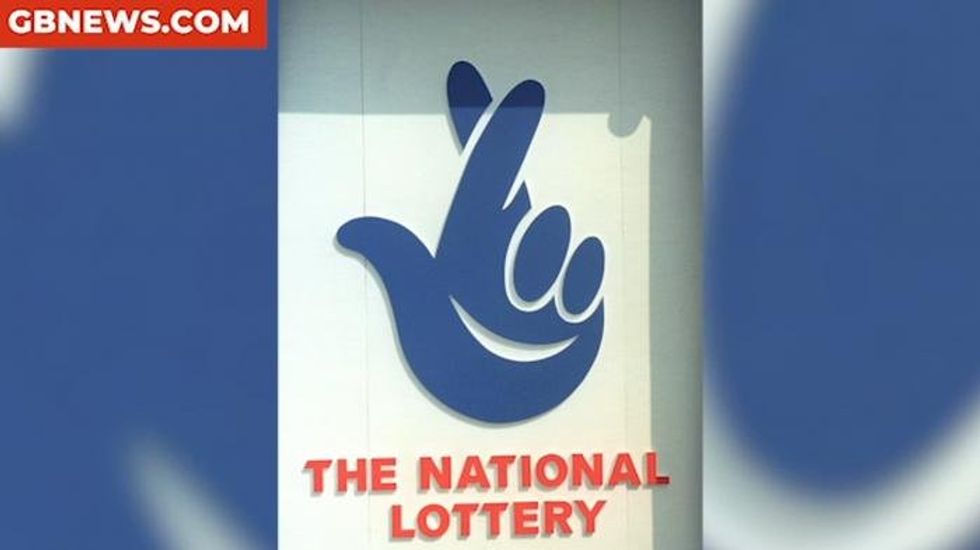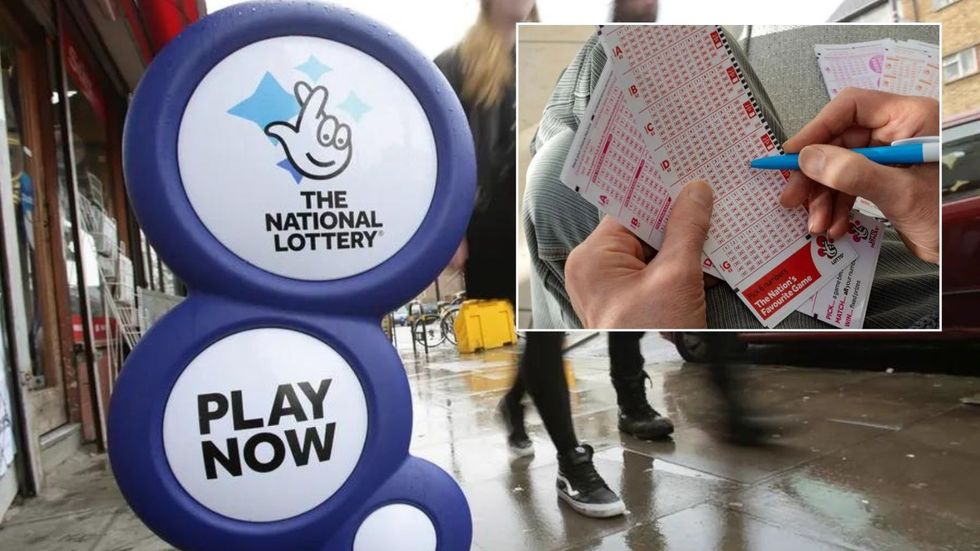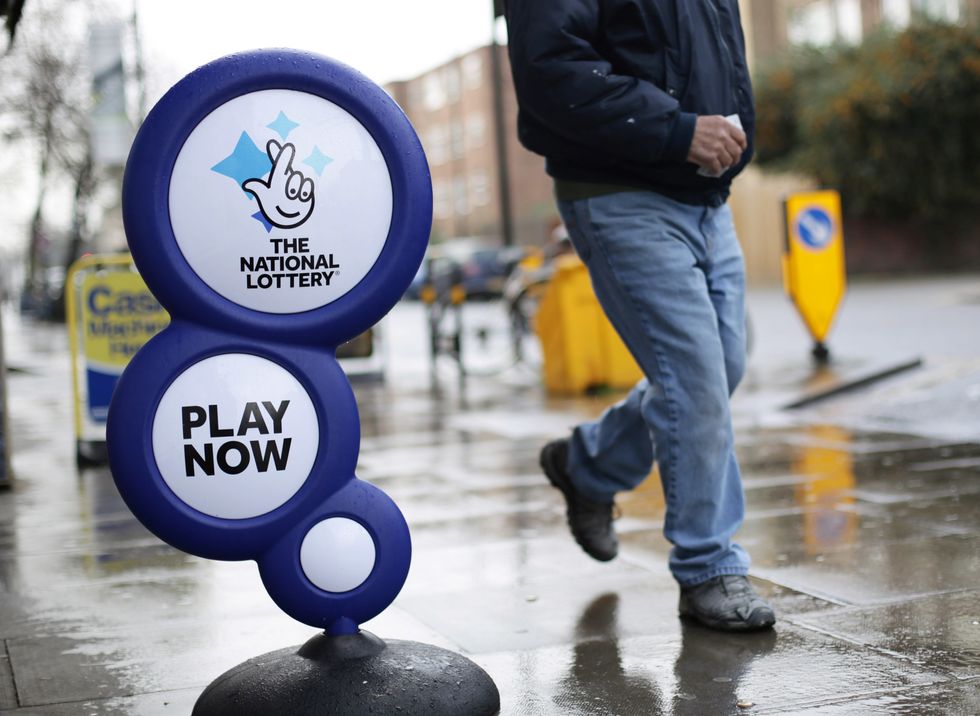The winner of the National Lottery licence deliberately submitted misleading bid information to the Gambling Commission in an “elaborate scheme” to throw rivals off track, a court heard today.
An executive from Allwyn, which won the competition to run the National Lottery, said its initial “very high” figure on how much profit it would take was only a “dummy”.
David Kleinhampl, Investment Director at Allwyn Services, told the High Court how he suggested that the number be included to confuse rivals in the event it was leaked.
The bid gave ten per cent as Allwyn’s “licensee proportion of surplus (LPS)”, but this number was never meant to be read as the final figure, Mr Kleinhampl said.

The number had dropped dramatically for its final bid. This came after feedback from the Gambling Commission.
Media tycoon Richard Desmond’s The New Lottery Company (TNLC), which is bringing the case, argues that the feedback gave Allwyn an unfair advantage and allowed it to tailor its bid accordingly.
Without this edge it may not have won the franchise, the court has heard.
TNLC was one of the bidders for the lucrative ten-year licence to run the National Lottery, but it came third in the tender. Allwyn subsequently bought Camelot, which came second.
LATEST DEVELOPMENTS
- BBC doctored Donald Trump speech a SECOND time as US President threatens legal war
- Sadiq Khan fails to apologise to grooming gang victims THREE times

However, TNLC claims that the Gambling Commission made “manifest errors” in the process and that these played a part in its failed bid.
Had these mistake not been made there was a “very real” prospect TNLC would have won, the court has been told.
TNLS and Northern & Shell are claiming up to £1.3b in the case.
Today, Mr Kleinhampl told the court how using a dummy LPS figure of ten per cent for the initial submission to the Gambling Commission had been his suggestion. It had then been cleared by the Allwyn board.
He suggested the Gambling Commission would have been able to ‘see through’ the dummy number because it was so high. Because phase one submissions weren’t scored by evaluators there was no issue in using an incorrect number, he said.
He told the court: “Phase one, we treated it as a dry run.
“In this particular case we were afraid of this leaking. If it leaked we didn’t want whoever it is of our competitors to have our accurate thinking about our bid.”
But Daniel Toledano KC, for TNLC, questioned this account.

He asked: “If leaking was your concern it would have been very easy to deal with by not including a figure at all, or making it clear it was a dummy figure. You put something in that was possibly misleading - why didn’t you use another method?”
Mr Kleinhampl said: “In these types of situation you don’t want to give information to your competitors that you don’t have to give them.”
Mr Toledano pointed out that there were guidelines stipulating that information provided in tenders needed to be “complete, accurate and not misleading”.
But the Allwyn executive said he believed the Commission, which had full sight of their business plan, would have realised it was a dummy, or ‘placeholder’, because it was such a high number.
Mr Toledano said: “You told the Commission that Allwyn was proposing a ‘highly competitive’ licensee proportion of surplus, at ten per cent. But that was inaccurate and misleading.”
Mr Kleinhampl said: “It was intended to be misleading to our competition, if it leaks. That’s why it says ‘highly competitive’, because we would have wanted the competition to think that’s the best we can do.”
Mr Toledano said: “It was also misleading to the Commission, correct?”
Mr Kleinhampl said: “I think you would have to ask the Gambling Commission whether it was misleading. It was certainly not meant to be misleading.My expectation at the time was that the Gambling Commission would see through it and understand that we are not going to have a correct number in this place. They would have seen that these returns were stellar -unheard of in the financial world.”
Mr Toledano said: “You are saying competitors would be fooled but the Gambling Commission would see through it?”
Mr Kleinhampl replied: “I would hope the competitors would be fooled.”
Alastair Ruxton, Chief Corporate Affairs Officer at Allwyn who served as its bid chair, said that the true LPS was known only by “the key people who needed to know”.
He added that he personally ‘might have heard’ that Allwyn had included a dummy figure in phase one but couldn’t be sure.
Mr Toldano said: “You heard David Kleinhampl describe an elaborate scheme designed to deceive competitors, were they to receive a leaked copy [of the phase one bid].
“You heard that a dummy figure was deliberately stuck into the bid in order to deceive competitors. Had you head about that figure that he described?”
Mr Kleinhampl answered: “It’s possible I might have heard that was a dummy figure.”
TNLC claim that the LPS figure was accurate and, had it not been changed after feedback, would have negatively affected Allwyn’s bid.
Mr Toledano said that “the suggestion this was all a placeholder and a dummy can’t be right, because this was all being presented to the government”.
TNLC is also claiming a conflict of interest, alleging that Rothschild bank was working with both the Gambling Commission on the lottery licence and, separately, with Allwyn.
Stepan Dlouhy, Chief Investment Officer at Allwyn Entertainment, told how he had had dealings with Rothschild about other interests before Allwyn entered the bid for the National Lottery.
Mr Dlouhy told the court that Allwyn had paid Rothschilds more than three million Euros for work to do with a stake in a Greek betting company just as the bidding process for the UK National Lottery was set to get underway.
But Mr Dlouhy said he worked with a range of investment bankers and said there was nothing our of the ordinary about the work or the sums involved.
“We had regular meetings with Rothschild and other investment banker that are covering the gaming industry,” he explained.
The case is being brought by Mr Desmond’s Northern & Shell company together with TNLC.
The court has heard claims that the Gambling Commission fell short on a number of issues.
These include the provision of feedback after the initial phase one of the bidding. TNLC says that while the feedback it received was inadequate, Allwyn was able to shape its bid advantageously thanks to its feedback from the Commission.
The court has heard that during the licensing process Allwyn “repeatedly breached” a publicity protocol designed to ensure “a level playing field” between bidders.
It is also alleged that both Allwyn and Camelot should have been disqualified from the process for serious failures in their bids. However, each was allowed to continue.
Further, TNLC says that the terms of the contract were modified after the winner was announced. Had TNLC known of these modifications, its bid may have been different and the outcome affected.
Both Allwyn and the Gambling Commission deny the claims.
The case continues.
Our Standards: The GB News Editorial Charter
from GB News https://ift.tt/grPFuWS


0 Comments